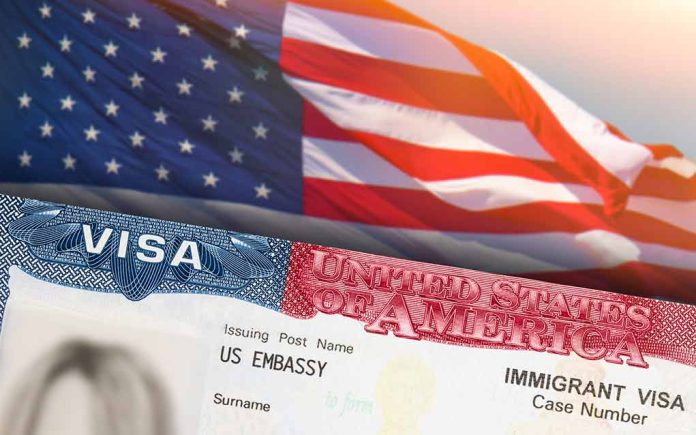
The Trump administration is finalizing negotiations with Rwanda to deport criminals that other countries refuse to accept, offering financial compensation in exchange for taking in America’s unwanted illegal immigrants.
Key Takeaways
- President Trump’s administration is actively negotiating with Rwanda to accept deportees from the U.S., including non-Rwandan nationals whose home countries refuse to take them back.
- The deal includes financial compensation for Rwanda, which could benefit the African nation’s struggling economy while providing the U.S. with a solution for deporting criminal illegal aliens.
- Secretary of State Marco Rubio is leading efforts to find countries willing to accept deportees, emphasizing the administration’s focus on removing dangerous criminals from American soil.
- Rwanda is considered strategically effective as a deterrent destination due to its distance from the U.S. and relative lack of amenities compared to American prisons.
- The administration claims to have effectively curtailed illegal immigration without new legislation, with this Rwanda arrangement representing another creative solution to immigration enforcement challenges.
Strategic Deportation Arrangement with Rwanda
The Trump administration has entered discussions with Rwanda to implement a groundbreaking deportation agreement that would allow the U.S. to remove criminal illegal aliens whose home countries refuse to accept them. This innovative solution addresses one of the most persistent challenges in immigration enforcement. The talks center around Rwanda accepting deportees who aren’t Rwandan citizens in exchange for financial compensation, creating a pathway for the removal of criminals who have previously been difficult to deport due to diplomatic obstacles.
Secretary of State Marco Rubio has taken a leading role in these negotiations, making it clear that the administration’s priority is removing dangerous individuals from American soil. “We are working with other countries to say, ‘We want to send you some of the most despicable human beings,'” said Secretary of State Marco Rubio.
The Trump administration is planning a massive deportation effort targeting 1 million immigrants annually, surpassing the previous high of over 400,000 under Obama, according to The Washington Post. White House advisor Stephen Miller is strategizing with federal officials to…
— Aleksandar Djokic (Александар Джокич) (@polidemitolog) April 13, 2025
Strategic Advantages of the Rwanda Agreement
The selection of Rwanda as a destination for deportees appears strategically calculated. Rubio emphasized that the “further away from America, the better” when it comes to placing these individuals, highlighting the administration’s determination to create effective deterrents against illegal immigration. Rwanda’s distance from the United States makes it an ideal location from an enforcement perspective, significantly reducing the likelihood of repeated illegal entry attempts. Additionally, conditions in Rwanda are considerably less comfortable than those in American detention facilities, creating a powerful disincentive.
“Further away from America, the better,” said Secretary of State Marco Rubio.
The deportees targeted for this arrangement are primarily illegal aliens with criminal records from African and Middle Eastern countries that have previously refused to accept deportations from the United States. This situation has created a significant challenge for immigration enforcement, as these individuals have often remained in the U.S. despite deportation orders due to their home countries’ non-cooperation. The Rwanda agreement represents a creative solution to this longstanding problem, allowing the administration to uphold the rule of law despite diplomatic obstacles.
Mutual Benefits and Legal Challenges
Rwanda stands to gain substantial financial benefits from this arrangement. With a GDP of approximately $1,220 per capita and limited internet access affecting around 30% of its population, the economic incentives offered by the United States could provide significant development opportunities for the African nation. The Trump administration has indicated that fair compensation will be provided to Rwanda for accepting these deportees, creating what could be characterized as a mutually beneficial agreement for both countries while addressing a critical national security concern for the United States.
Despite these advances in deportation policy, the administration has faced legal challenges to some of its enforcement strategies. A federal judge in Texas recently ruled against the use of the Alien Enemies Act to deport Venezuelan migrants without due process, requiring the administration to adapt its approach. However, these legal setbacks have not deterred the overall immigration enforcement strategy, with the administration continuing to pursue multiple avenues to secure the border and remove illegal aliens, particularly those with criminal records who pose a threat to American communities.













